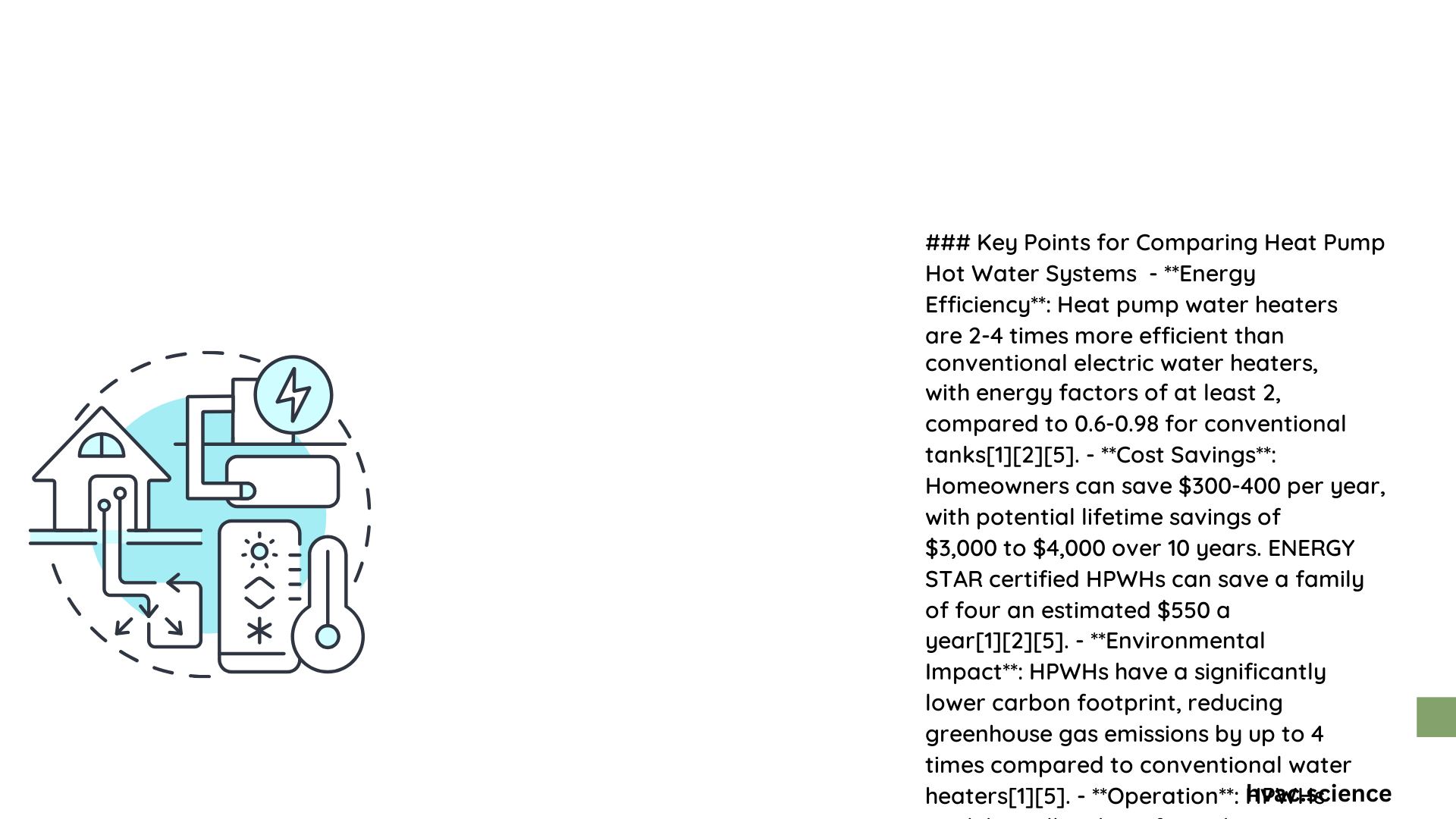Heat pump hot water systems represent a revolutionary approach to domestic water heating, offering unprecedented energy efficiency and substantial cost savings. Homeowners seeking sustainable and economical water heating solutions can leverage these advanced technologies to reduce electricity consumption, lower utility bills, and minimize environmental impact while enjoying consistent hot water performance across various climate conditions.
What Makes Heat Pump Hot Water Systems Unique?
Heat pump water heaters distinguish themselves through remarkable energy transfer mechanisms that extract thermal energy from ambient air, transforming it into hot water with exceptional efficiency. Unlike traditional electric water heaters, these systems consume significantly less electricity while delivering superior performance.
How Do Efficiency Ratings Compare?
Coefficient of Performance (COP) Analysis
| Heat Pump Model | COP Rating | Energy Savings |
|---|---|---|
| SLA R290 | 5.2 | Up to 80% |
| Rheem AmbiPower® 280e | 5.2 | Up to 73.9% |
| Ambiheat® HDc-270 | 4.5 | Up to 70% |
Key efficiency metrics include:
– COP Range: 3 to 5.2
– Energy Factor (EF): 2.6 to 2.8
– Uniform Energy Factor (UEF): 3.3 to 4.1
What Are the Cost Implications?
Initial Investment Breakdown
- Purchase Cost: $2,000 – $3,500
- Estimated Payback Period: Approximately 3 years
- Annual Energy Savings: $300 – $500
How Reliable Are Heat Pump Water Heaters?
Reliability factors include:
1. Consistent performance across temperature ranges
2. Low maintenance requirements
3. Extended warranty periods (typically 10 years)
4. User satisfaction ratings of 8-9/10
What Maintenance Challenges Exist?
Maintenance Complexity
- DIY Tasks: Filter cleaning (every 3-6 months)
- Professional Service: Annual system inspection
- Part Accessibility: Generally good for major brands
Which Factors Influence Performance?
Critical performance considerations:
– Operational temperature range
– Recovery rate
– Energy consumption
– Installation environment
What Should Consumers Consider?
Key decision-making factors:
– Local climate conditions
– Household hot water demand
– Available installation space
– Budget constraints
– Long-term energy savings potential
Comparative Performance Metrics

Temperature Recovery Capabilities
- Rheem Models: -5°C to +43°C operational range
- Backup Electric Elements: Quick temperature recovery
- Consistent Hot Water Supply: Guaranteed performance
Expert Recommendations
- Prioritize high COP ratings
- Consider local climate adaptability
- Evaluate long-term cost savings
- Check manufacturer warranties
- Assess installation requirements
Potential Limitations
- Higher upfront investment
- Specific installation requirements
- Performance variations in extreme temperatures
Final Insights
Heat pump hot water systems offer a compelling alternative to traditional water heating methods, combining energy efficiency, cost-effectiveness, and environmental sustainability.
Recommended Models
- SLA R290
- Rheem AmbiPower® 280e
- Ambiheat® HDc-270
